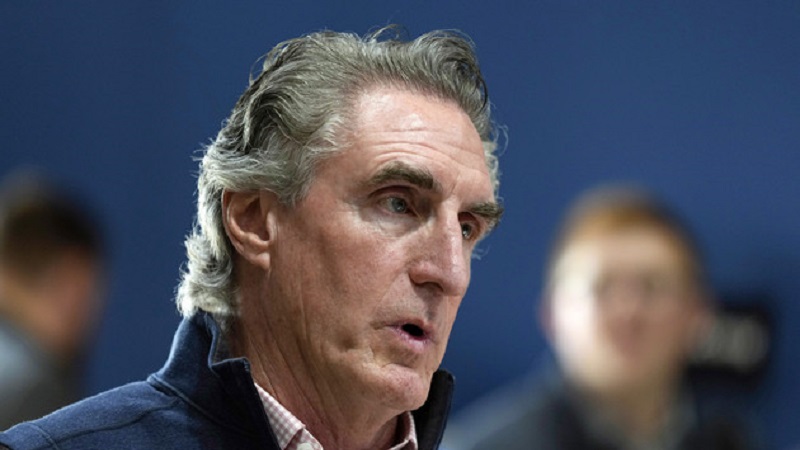Local News
Governor Burgum declared last month that he would not run for president again and would not seek a third term

Bismarck, North Dakota – The announcement was made on Monday by Governor Doug Burgum that he will not be running for a third term, which ends on December 14, 2024.
Being North Dakota’s first lady and governor, according to Burgum, “has been one of the most incredible and rewarding experiences of our lives.” We will always be appreciative to the people of North Dakota for providing Kathryn and me with two separate opportunities to serve our beloved state.
Burgum became the 33rd governor of North Dakota on December 15, 2016, after winning the election in November 2016. In November 2020, he won a second term through reelection.
“Over the past seven years, we’ve made remarkable strides in infrastructure, education, and other areas, from record tax relief and historic investments to leading our state through historic challenges like flooding, drought, the DAPL protests, and a global pandemic,” Burgum stated in his announcement.
The former president’s admiration for the obscure governor, coupled with Burgum’s recent endorsement of him, have stoked rumors that Burgum may serve in a potential second Trump administration.
Burgum, 67, is a successful software entrepreneur who surprised everyone in 2016 by defeating the state’s well-liked attorney general in the Republican primary for governor. Amidst a $1 billion deficit in state revenue, his campaign platform revolved around “reinventing” the state government. He went on to win by landslide victories both his first term and reelection in 2020.
His choice opens up a contest for the state government’s top position in the Republican-dominated, sparsely populated state. Republicans have supermajorities in the Legislature and control every statewide and congressional seat. Since Heidi Heitkamp’s victory in the 2012 U.S. Senate race, Democrats have not won a statewide election. They last won the governor’s office in 1988.
Burgum took office during the height of the protests against the Dakota Access oil pipeline. As COVID-19 cases surged, he spearheaded the state’s response to the epidemic by advocating for “personal responsibility” and being “North Dakota smart.” Along with dealing with severe droughts and devastating winter storms, he also had to make decisions on how to use the state’s growing oil tax savings and federal coronavirus help.
In the vibrant Badlands of the state, where the 26th president hunted and roamed in the 1880s, Burgum, as governor, pushed for the establishment of a Theodore Roosevelt presidential library. He made addiction recovery a primary priority in his administration, as did his alcoholic wife Kathryn.
To varying degrees, he has advocated for income tax reductions. Last year, opponents criticized him for signing a plethora of measures that restricted school athletic participation and outlawed gender-affirming child care, both of which they claimed were detrimental to transgender individuals.
He’s never had a good connection with lawmakers. With millions of his dollars, Burgum targeted Republican colleagues’ seats in 2020 and 2022, including the chief House budget writer.
In 2022, Burgum backed a vote initiative to limit term limits. State legislators have a term limit of eight years in the House and eight years in the Senate, and the governor may only be elected twice. Burgum is free to run for a third or fourth term because the term limitations are not retroactive.
Burgum spent more than $12 million of his funds on his six-month-long presidential campaign, which he completed in December. To achieve the donation requirements for the debate stage, he gave $20 gift cards to contributors, which attracted attention. He also attacked the debate qualification rules, calling them arbitrary.
Burgum’s greatest-known role before becoming governor was that of a software executive. In 2001, he oversaw Great Plains Software’s $1 billion acquisition by Microsoft. Before 2007, he held leadership positions in venture capital and real estate development enterprises. He was an executive at Microsoft.





